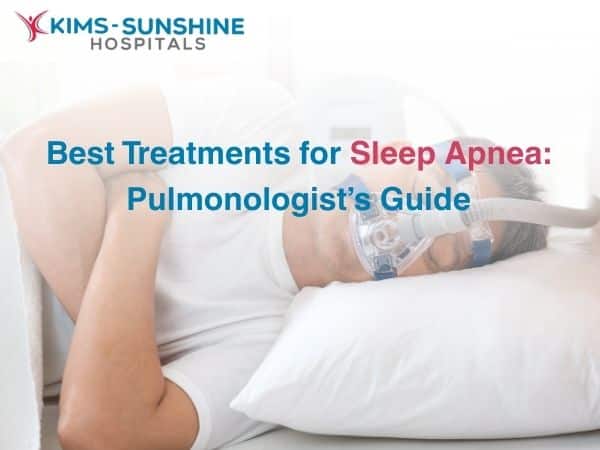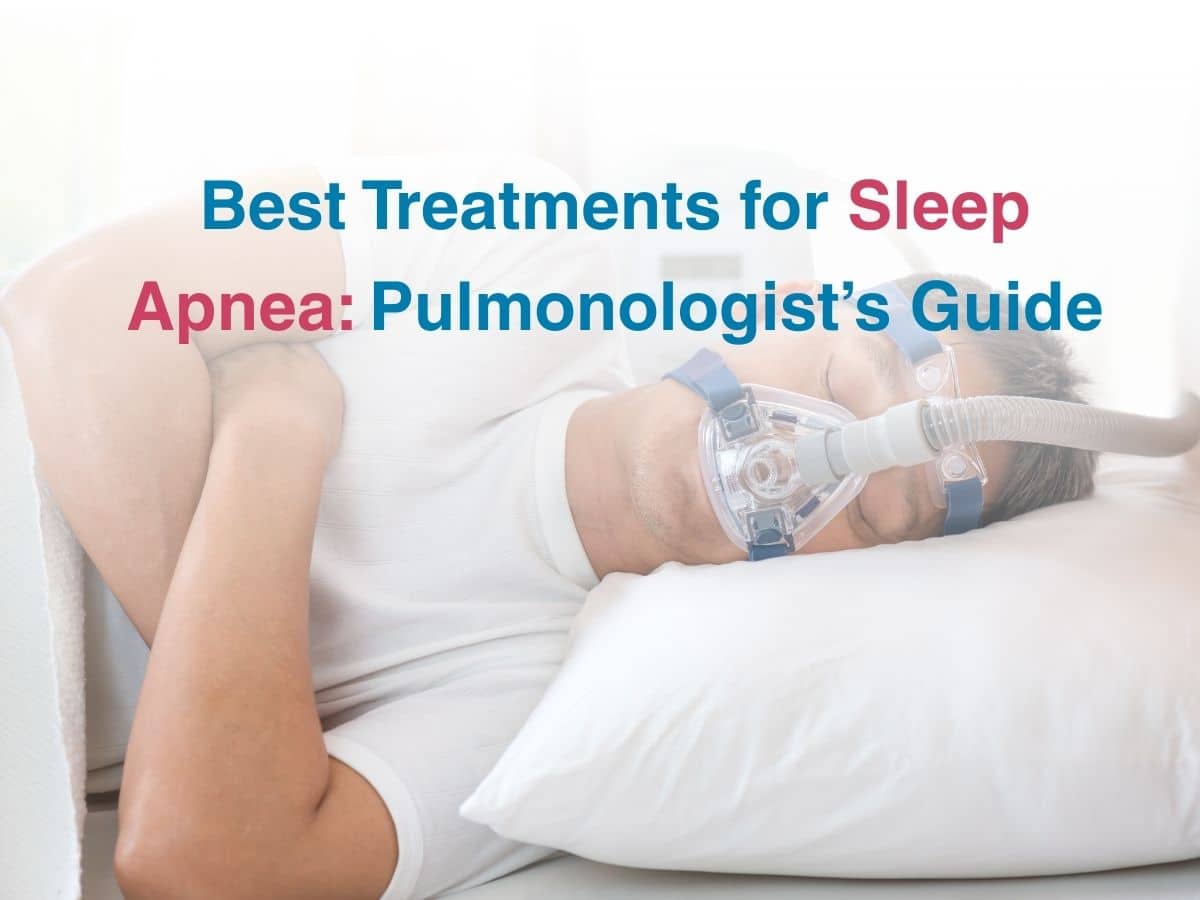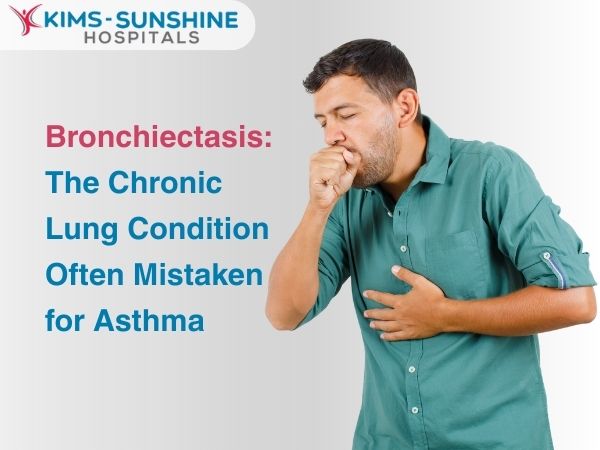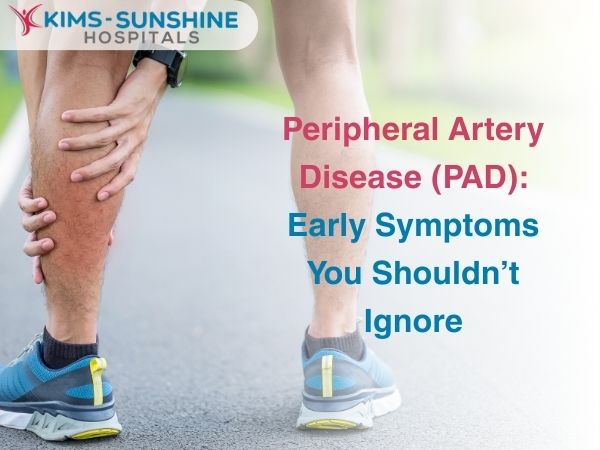
Best Treatments For Sleep Apnoea: Pulmonologist’s Guide
 Sleep is a very important activity that needs to occur on a regular schedule, as any disorder with sleep can lead to abnormal functioning of the mind and body. Sleep apnoea is one such potentially serious sleep disorder in which breathing repeatedly stops and starts. Loud snoring with a full night sleep and still being tired the next morning could be an indication of sleep apnoea. Obstructive sleep apnoea in India affects around 11% of the adult population, with varying degrees of severity. Males are significantly more prone to sleep apnoea than females with prevalence rates around 13% in men and 5% in women respectively.
Sleep is a very important activity that needs to occur on a regular schedule, as any disorder with sleep can lead to abnormal functioning of the mind and body. Sleep apnoea is one such potentially serious sleep disorder in which breathing repeatedly stops and starts. Loud snoring with a full night sleep and still being tired the next morning could be an indication of sleep apnoea. Obstructive sleep apnoea in India affects around 11% of the adult population, with varying degrees of severity. Males are significantly more prone to sleep apnoea than females with prevalence rates around 13% in men and 5% in women respectively.
Different Types, Risks And Causes Of Sleep Apnoea
The two main types of sleep apnoea are:
- Obstructive Sleep Apnoea (OSA), which is the more common form that occurs when throat muscles relax and block the flow of air into the lungs.
Causes: Relaxation of internal throat muscles causing a snort, choke or gasp at least 5 to 30 times or more each hour, all night. This makes it hard to reach deep, restful sleep.
Risk Factors Of OSA:
- Excess weight or Obesity
- Thick Neck circumference.
- An inherited narrowed airway.
- Tonsils or adenoids also can enlarge and block the airway, particularly in children.
- Old age.
- Family history with sleep apnoea might increase your risk.
- Use of alcohol, sedatives or tranquilizers.
- Smoking can cause inflammation and fluid retention in the upper airway.
- Nasal congestion due to nasal deformities or due to allergies.
- Medical conditions like congestive heart failure, high blood pressure and type-2 diabetes are some of the conditions that may increase the risk of obstructive sleep apnoea. Polycystic ovary syndrome, hormonal disorders, prior stroke and chronic lung diseases such as asthma also can increase risk in the long term.
2. Central Sleep Apnoea (CSA), which occurs when the brain doesn’t send proper signals to the muscles that control breathing.
Causes: Failure or inability of the brain to send impulses to the muscles involved in breathing.
Risk Factors Of CSA:
- Middle-aged and older people have a higher risk of central sleep apnoea.
- Central sleep apnoea is more common in men than it is in women.
- Heart disorders like congestive heart failure increases the risk.
- Using narcotic pain medicines. Opioid medicines, long-acting ones such as methadone, increase the risk of central sleep apnoea.
- Stroke
Symptoms Of Sleep Apnoea-
The most common symptoms of obstructive and central sleep apnoeas include:
- Loud snoring.
- Episodes in which you stop breathing during sleep.
- Gasping for air during sleep.
- Awakening with a dry mouth.
- Morning headache.
- Difficulty staying asleep, known as insomnia.
- Excessive daytime sleepiness, known as hypersomnia.
- Difficulty paying attention while awake.
- Irritability.
Pulmonologist Guide For Sleep Apnoea
- Diagnosis is made by your health care provider on the basis of your symptoms and sleep history.
- An evaluation often involves overnight monitoring of your breathing and other body functions during sleep with tests like nocturnal poly-somnography and home sleep studies that are used for diagnosing the condition.
- The most widely used and effective treatment for sleep apnoea is continuous positive airway pressure (CPAP). Other devices like oral appliances are designed to open your throat by bringing your jaw forward, which can sometimes relieve snoring and mild obstructive sleep apnoea.
- Surgical procedures like tissue removal, tissue shrinkage, implants etc. are an option in severe sleep apnoeas usually only after other treatments have failed.
Long term complications of untreated sleep apnoea
- Arrhythmias
- High blood pressure
- Heart failure
- Sudden cardiac death
- Excessive day time sleepiness.
Conclusion
Sleep apnoea is a very subtle and slow progressing condition; lack of oxygen to the brain and other organs can lead to critical damage and sometimes cell death. Identifying the issue at the right time can help in getting prompt treatment. So, don’t wait too long to consult a pulmonologist for an effective method of recovery and treatment. Individuals with high risk factors of sleep apnoea should be extra cautious and take the required measures to restore good sleep and in turn, improve overall health.






